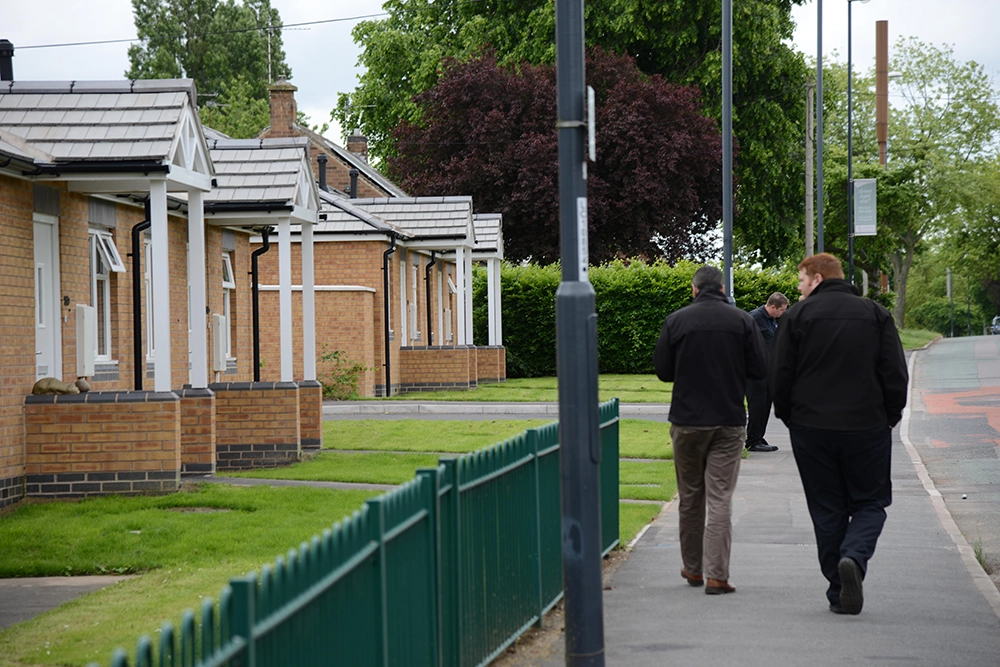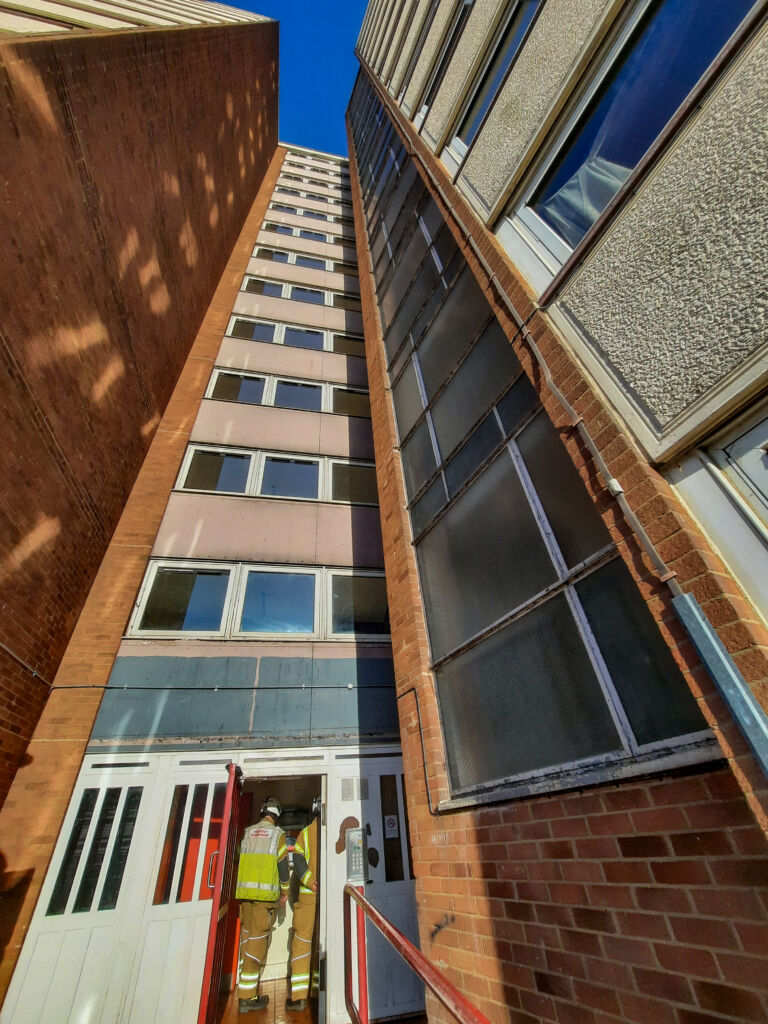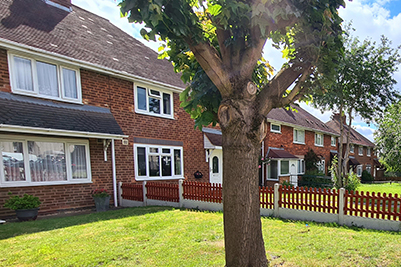About CWAG
This author has not yet filled in any details.So far CWAG has created 94 blog entries.
CWAG Newsletter – January 2023

This Update includes the following
Better Social Housing Review
CWAG Diary
Recent Publications
Better Social Housing Review
The Better Social Housing Review published in December 2022 follows a six-month examination of the key issues and challenges currently facing social housing. The review which was undertaken by a panel of independent experts on behalf of the National Housing Federation (NHF) and Chartered Institute of Housing (CIH) addresses itself specifically to housing associations although there is a read across to the wider social housing sector.
The review identifies two central issues as top priorities for those living in social housing, namely the suitability and quality of housing stock and the housing association’s culture and responsiveness to tenants’ concerns and complaints. The Report goes on to make a series of detailed recommendations to address current issues and concerns – see box
The NHF and CIH have accepted the report and its findings and are committed to developing an action plan to implement its recommendations. Secretary of State Michael Gove also welcomed the report’s call for a full audit of social rented stock to identify and tackle disrepair alongside action on wider resident concerns around service delivery and engagement flagged up in the report.
There are seven key recommendations:
- The sector should refocus on its core purpose – to provide decent, safe homes for those who can’t afford the market.
- A national audit of social housing stock to address the absence of a comprehensive, consistently measured picture of the state of social housing across the country. The report recommends that all organisations should use the new HACT UK Housing Data Standards.
- Organisations should ask tenants, frontline staff and contractors to work together to review how the organisation deals with maintenance and repairs with a view to developing new standards and definitions for what an excellent maintenance and repairs process looks like.
- Renewed focus, resources and training to support the traditional housing officer role.
- Tenants should be recognised as key partners with initiatives to expand the roles they can play within organisations to ensure tenants have a voice and influence at every level of decision making.
- Organisations should develop a proactive local community presence through community hubs which foster greater multi-agency working.
- Organisations should work with their tenants and frontline to undertake an annual review of the progress in implementing the recommendations of the review.
CWAG Diary
Finance and Business Planning Meeting – 24th January 2023 (10.30a.m – 12.30p.m)
Steve Partridge – Savills Director of Housing Consultancy will lead this event which will focus on current finance and business planning issues including the impact if the rent cap, inflationary pressures and other pressures on the HRA. The meeting will be of particular interest to finance officers, and anyone involved in HRA strategy and business planning.
The event is a free event that is open to CWAG members – to book a place, please contact the Policy Officer.

Recent Publications
Check your fire safety responsibilities under the Fire Safety (England) Regulations 2022
The Home Office published a guide to the new Fire Safety Regulations in England which come into force on 23rd January 2023. The new regulations cover all buildings containing two or more domestic premises with common parts. The main purpose of the regulations relates to new duties for ‘responsible persons’ in respect of high-rise buildings. These duties include signages, information requirements for residents and the Fire Service along with regular checks to fire doors, lifts and fire safety equipment.
Housing Ombudsman Service Insight Report July -September 2022
This latest Insight Report covers complaints data for the second quarter of 2022. Complaints volumes remain at a high level and cases upheld remains high at 55%. The majority of complaints continue to relate to property condition, but a sizable number also relate to complaints handling. This report includes four good practice case studies drawn from Greater London.
English Housing Survey 2021 to 2022: headline report
Latest DLUHC English Housing Survey Report covers the latest information on the breakdown of housing by tenure, household characteristics as well as information on property condition and energy efficiency.
The Better Social Housing Review
The Better Social Housing Review follows a six-month examination of the key issues and challenges facing social housing by a panel of independent experts on behalf of the National Housing Federation and Chartered Institute of Housing. This review addresses itself specifically to housing associations although there is a read across to the wider social housing sector.
The review identifies two central issues as top priorities for people living in social housing:
- the suitability and quality of housing stock
- the housing association’s culture and responsiveness to tenants’ concerns and complaints
There are seven key recommendations:
- The sector should refocus on its core purpose – to provide decent, safe homes for those who can’t afford the market.
- A national audit of social housing stock to develop a consistent picture of the state of social housing across the country. The report recommends that all organisations should use the new HACT UK Housing Data Standards.
- Organisations should bring together tenants, frontline staff and contractors to review maintenance and repairs and develop new approaches and definitions for what an excellent maintenance and repairs process looks like.
- There should be a renewed focus on resources and training to support the traditional housing officer role.
- Tenants should be recognised as key partners with initiatives to expand their role within organisations to ensure tenants have a voice and influence at every level of decision making.
- Organisations should develop a proactive local community presence through community hubs which foster greater multi-agency working.
- Organisations should work with their tenants and frontline to undertake an annual review of the progress in implementing the recommendations of the review.
The review has been warmly welcomed by housing organisations and others including Michael Gove, Secretary of State for Levelling Up, Housing and Communities, who endorsed the call for an audit of stock condition and action on disrepair along with other improvements to address wider resident concerns around service delivery and engagement.
CWAG Newsletter – December 2022

This Update includes the following
Government demands action to drive up standards in rented housing
Chancellor sets rent cap at 7% in Autumn Statement
Retrofit credits scheme
Housing Ombudsman Call for Evidence on record keeping
Diary Dates
Recent Publications
Government demands action to drive up standards in rented housing
The coroner’s verdict that the tragic death of Awaab Ishak was caused by prolonged exposure to mould in his parents’ Rochdale flat has prompted Secretary of State Michael Gove to seek wider assurances from local authorities and social landlords that risks relating to mould and damp in tenanted homes are being addressed.
On 19th November 2022 Michael Gove wrote to all social housing providers reminding them of that they must meet the Decent Homes Standard and be aware of, and carry out rapid remedial works to, any properties that do not. Landlords are expected to know the extent of damp and mould issues in their stock and be addressing these.
A follow up letter from the Regulator of Social Housing seeks specific assurances that all providers have a clear understanding of the nature and extent of damp and mould issues in their homes with detailed survey information confirming the position to be submitted to the Regulator by 19th December 2022. Where properties do not meet the relevant standards there should be immediate self-referral to the Regulator.
A further letter to all local authority Chief Executives and council leaders references local authority duties toward tenants in the private rented sector as set out in the Housing Act 2004. The Secretary of State has issued a direction that local authorities urgently review and report back on categories 1 and 2 damp and mould hazards affecting privately rented properties in their areas. In addition, authorities are required to supply data on enforcement action and prosecutions in the past three years.
On 24th November 2022 the Secretary of State issued a press notice further reinforcing the government’s determination to hold landlords to account for the condition of their homes. This included the following measures:
- Rochdale Boroughwide Housing, the landlord in the Awaab Ishak case, will not receive allocated Affordable Homes Programme (AHP) funding until the Regulator of Social Housing has completed its investigation and the landlord can prove it is a ‘responsible’ landlord.
- The Secretary of State will also block any housing provider that breaches the Regulator’s consumer standards from receiving new AHP funding and will consider stripping providers of existing AHP funding, unless construction has already started on site.
- A government funding package totalling £14million was announced for 7 areas with high levels of poor quality private rented homes to test out new approaches to driving up standards in the PRS.
Chancellor sets rent cap at 7% in Autumn Statement
As part of the Autumn Statement on 17th November 2022 the government announced the outcome of the Social Housing Rents Consultation with the rent cap for 2023 set at 7% but with an exception for supported housing. Registered Providers of social housing have the flexibility to apply a lower increase, or to freeze or reduce rents, if they wish to do so.
The 7% figure is higher than suggested in the earlier consultation paper where a cap of 5% was the suggested option. The higher figure has been presented as an attempt by government to strike a balance between protecting tenants from high rent increases and ensuring that Registered Providers of social housing remain financially viable.
The government intends to consult separately next year on social housing rent policy from 2025 onwards. To inform this, DLUHC will launch a call for evidence on whether social landlords should be permitted, gradually over time, to bring rents back up to the level they would have been had 7% cap not been applied. Other factors including affordability for tenants and welfare expenditure will also be taken into account.
Retrofit Credits scheme
A new scheme developed by the Housing Association Charitable Trust (HACT) in partnership with Arctica Partners may be of interest to councils putting together funding packages for energy efficiency and decarbonisation works.
Retrofit credits is a UK based carbon credits scheme that enables organisations to offset their carbon emissions by investing in social housing. The scheme involves using a tested methodology to measure both the carbon savings and social value created through retrofit activity. To ensure the environmental integrity of the issued credits, the scheme has been developed under the Verified Carbon Standard, the world’s leading certification programme for emission reduction projects.
It is anticipated that the scheme has the potential to generate significant funding for retrofit schemes in social housing. The scheme is currently being piloted but will be formally launched in 2023.
More information is available in the prospectus document and frequently asked questions.

Housing Ombudsman call for evidence on record keeping
The Housing Ombudsman has announced that its next systemic investigation and Spotlight Report will look at record keeping and data management around complaints handling. This reflects a concern that poor record keeping is a key factor in 67% of maladministration determinations.
A call for evidence has been issues that seeks to understand more about current barriers to effective information management on complaints.
The aim is to share best practice around record keeping and data handling and help landlords develop policies and procedures that are consistent and effective and improve the experience of all residents.
Diary Dates
CWAG Client Officer Group – Monday 12th December 2022
CWAG members interested in setting up a networking group to discuss issues relating to the managing the ALMO client role including performance, regulation, and assurance issues will be meeting to discuss Terms of Reference for the group and agree an initial programme of issues for review. Contact the Policy Officer for further details.
LGA Building Safety Webinar – Monday 19th December 2022 (1p.m – 3p.m)
The LGA is hosting a further building safety webinar that will provide updates on councils’ responsibilities as landlords/ALMO overseers in respect of the new Building Safety regime, the Fire Safety Act and new fire safety regulations arriving in January. This is a free event open to council / ALMO officers with an interest in the new building safety regime and the Fire Safety Act. To book use link
CWAG Finance and Business Planning Meeting – 24th January 2023 (10.30a.m – 12.30p.m)
Steve Partridge - Savills Director of Housing Consultancy will lead this event which will focus on current finance and business planning issues including the implications of the recently announced rent cap, inflation and other pressures on the HRA. The meeting will be of particular interest to finance officers, and anyone involved in HRA strategy and business planning. The event is open to CWAG members - to book a place, please contact the Policy Officer.

Recent Publications
Sector Risk Profile 2022 – Regulator of Social Housing (RSH)
This RSH report sets out the most significant current risks to maintaining compliance with the regulatory standards and is essential reading for social housing providers facing an increasingly complex operating environment, reducing resources and a growing list of priorities. Read Report
Decarbonising Social Housing – Lessons from the ALMO Sector
The National Federation of ALMOs (NFA) has just published a new report which examines the decarbonisation challenge facing the sector alongside seven case studies which illustrate various approaches ALMOs are taking to decarbonise the stock and make tenants homes more energy efficient. It also sets out recommendations for government and policymakers to support housing providers in moving forward on the decarbonisation agenda.
CWAG Newsletter – November 2022
This Update includes the following
Michael Gove re-appointed as Secretary of State (DLUHC)
LGA Webinars
Recent Publications

Michael Gove re-appointed as Secretary of State (DLUHC)
Rishi Sunak’s reappointment of Michael Gove’s as Secretary of State for Levelling Up, Housing and Communities signals a return to continuity in housing policy with a focus on the 2018 election manifesto commitments including levelling up and housebuilding. However, the environment is now much more challenging than at the time of his earlier sacking by Boris Johnson back in July, raising questions around what can now realistically be achieved given high inflation and squeezed departmental budgets.
In a recent BBC interview Gove restated the government’s commitment to building 300,000 new homes a year although admitted this would be ‘difficult’ stressing the importance of having the consent of local communities, protecting the environment, and ensuring developments are ‘beautiful’ and matched with appropriate infrastructure. He also confirmed his department would be continuing with previously announced legislation to tackle rogue landlords as set out in ‘A Fairer Private Rented Sector’ White Paper.
The Fiscal Statement due on 17th November 2022 will set out the wider financial position for DLUHC with implications for a key policy areas. It is likely that the decision on proposals to cap the level of social rent increases in 2023 will be delayed until the wider fiscal position becomes clearer.
Lee Rowley (MP for NE Derbyshire) has also retained his position as Housing Minister.

LGA Webinars
The following LGA webinars may be of interest to CWAG members and can be attended free of charge:
Webinar -Building Safety Update – Monday 7th November 2022 (11.30 am – 1.30 pm)
This free LGA webinar will provide an update on councils’ responsibilities in respect of the new Building Safety regime, the Fire Safety Act and new fire safety regulations arriving in January.
There will be speakers from the HSE, the Home Office and the National Fire Chiefs Council (NFCC). The event aims to bring attendees fully up to date on the new arrangements with a focus ensuring that residents are safe and feel safe in their homes. The LGA will also give an update on its PEEPs work.
The webinar is being held over Zoom and is open to council officers and ALMOs. To book use link
Webinar – The Social Housing Regulation Bill – Monday 21st November 2022 (10.30 am – 12.30 pm)
This LGA event is a collaboration with ARCH and the NFA. The programme will discuss the forthcoming Social Housing Regulation Bill and includes speakers from the Department for Levelling Up, Housing and Communities (DLUHC) and the Regulator of Social Housing (RSH).
The webinar is being held over Zoom and is free to LGA members. To find out more information and to book use link
Recent Publications
Housing Ombudsman Spotlight Report – Noise Complaints: time to be heard
This latest Spotlight Report looked in depth at noise related complaints drawing on casework and a recent ‘call for evidence’. The report highlights a fundamental unfairness in the way many social landlords approach noise complaints, with most being dealt with as anti-social behaviour (ASB) even where they relate to general household noise.
Landlords are often caught up in time consuming and futile interventions which fail to tackle the underlying issues. Whilst recognising that this is a complex area where solutions are often difficult, the sector is urged to adopt several alternative approaches to address current poor outcomes and the significant costs to residents in terms of their mental health and well-being.
The report includes a 32-point self-assessment tool setting out a range of possible measures to reduce noise related complaints including changes to the building fabric, management arrangements and the way noise complaints are categorised.
Download Report and Self-Assessment Tool
A Housing Ombudsman is holding a webinar to discuss the report and answer questions on Wednesday 16 November 2022 at 2pm. This is aimed at landlords, governing body members and engaged residents. For further details on how to book – link
The Levelling Up, Housing and Communities Select Committee Exempt Accommodation Report published 19th October 2022
The Select Committee Report into exempt accommodation, a type of supported housing outside of Housing Benefit Regulations, sets out how the system is failing many residents and local communities at the taxpayers’ expense. The Report calls on the Government to bring forward urgent reforms including:
- compulsory national minimum standards for exempt accommodation, including on referrals, care & support, and quality of housing
- to give local councils the powers and resources to enforce these standards
- requiring all exempt accommodation providers to be registered
- creation of a National Oversight Committee to join-up existing regulators addressing the current ‘patchwork regulation’
- ensuring that providers of exempt accommodation for survivors of domestic abuse have recognised expertise to provide specialist support and a safe environment
- reviewing arrangements for exempt housing benefit claims, clamping down on the exploitation of the lease-based exempt accommodation model for profit
LGA, ARCH, NFA Rent and Income Analysis – Savills Affordable Housing Consultancy – October 2022
This research set out to estimate the cumulative loss of resources within Housing Revenue Accounts of the proposal to cap rent increases to 5% per year in 2023/24 and 2024/25. The research found that a 5 per cent rent cap would cost £1.16 billion in the next two years, rising to more than £3 billion within five years. In addition, as the rent cap changes the baseline for future rent increases, the longer-term financial hit is likely to be as high as £45 million over the next four decades. Further information about this report is available on the LGA website – link
Implementing TSMs – Practical issues and challenges
At the recent CWAG AGM, Jonathan Cox from Housemark discussed the practical issues and challenges involved in achieving compliant data collection arrangements by April 2023 when TSMs are introduced.
The overall trend in perception surveys over the past 5 years has consistently shown a decline in satisfaction levels. Many landlords stopped carrying out the STAR survey once this was no longer mandatory, these landlords will find their baseline is now much lower than historical data.
The move to perception based TSMs will provide landlords with important resident feedback to constructively drive improvements that tenants recognise and value. However, in his presentation Jonathan identified five barriers to making the most of TSM survey feedback including being overly focussed on scores, a fragmented approach to surveying, questions overload and survey fatigue, as well as a lack of internal capacity to use the data effectively.
Housemark has also identified 11 major variables affecting perception survey scores including:
Contextual Issues
- Location / Urbanisation (tenants in cities report lower satisfaction)
- Tenant age (older people tend to be more satisfied)
- Tenure type (leaseholders, although not part of TSM surveying, tend be the most dissatisfied followed by shared owners with renters relatively more satisfied)
- Size of landlord (smaller landlords tend to get higher scores, possibly because there is likely to be a single point of contact for tenants)
Methodological Issues
- Collection method will impact on scores (on-line surveys will be 10 -15 points lower than face-to-face surveying, with telephone surveys somewhere in between) Transactional surveys give the highest scores but are not allowed for TSMs)
- Sample selection (general needs stock will differ from more specialist provision),
- Scale (smaller sample sizes can distort results)
- Time of year (scores of surveys carried out in Winter are approximately 2% lower than for surveys carried out in Summer)
Landlord performance drivers
- Landlord accessibility and responsiveness (how quickly and easily can the tenant contact the landlord and resolve issues)
- Respectful and helpful engagement (is the landlord perceived as helpful and respectful in the way it engages with tenants)
- Responsive repairs (tenant experience of the landlord on responsive repairs is a significant driver of overall perception of, and satisfaction with the landlord)
Consultation on Social Housing Rents – CWAG Response
The government social housing rents consultation closed on 12th October 2022. The consultation covered options for capping social housing rent increases in 2023/24 below the agreed CPI+ 1% formula.
The CWAG submission to the consultation argues that the decision should be based on local discretion and local circumstances rather than an imposed cap. In practice most local authorities are unlikely to raise their rents in 2023 by the maximum permitted under the formula.
An imposed 5% cap will leave HRAs constrained and under-resourced in business planning terms for years to come. Given that any reduction below inflation will represent a saving to the Exchequer as housing benefit and Universal Credit are reduced, these savings should be used to provide additional grant funding for essential building safety, maintenance and carbon reduction programmes that will inevitably be stalled by rent capping.
Consultation on Social Housing Rents
Current rent policy dates back to 2019 and permits social housing rents to increase by up to the CPI rate at the previous September plus 1% point. This policy was intended to run up to 2025 providing longer-term certainty and stability for business planning and investment.
However, faced with an unprecedented rise in inflation and the exceptional cost of living pressures on households, the government is now proposing to restrict the 2023 social housing rent increase and is consulting on alternative arrangements.
Under the consultation proposals social landlords would be permitted to increase rents by up to CPI+1% or by 5%, whichever is the lower, effectively placing a 5% ceiling on increases next year.
The consultation is also inviting views on alternative ceiling options (such as 3% and 7 %) and whether restrictions should be extended beyond next year to cover the 2024 increase as well. The government is also keen to understand what councils would opt to do in terms of rent increases if this ceiling was not to be imposed.
The intention is for the proposed rent increase ceiling to only apply to existing tenants, it will not apply on new properties and relets where the formula rent and full CPI plus 1% can be applied. The consultation also states that these arrangements will apply across the board, it is not proposed to make exceptions for certain less financially resilient categories of social housing – although feedback is sought on this. Where individual landlords face viability issues, it may under certain circumstances be possible to agree a waiver with the Regulator of Social Housing.
DLUHC has published an impact assessment alongside the consultation which estimates the loss of rental income for councils at £3.4billion in the 5-year period between 2023 and 2028.
In framing the CWAG response we are keen receive feedback from CWAG members on the consultation proposals and how these will impact locally on HRA business plans, the scale of financial loss and what this will mean on a practical level in terms of services for residents, repair programmes and investment plans including newbuild and meeting climate change targets.
The consultation runs for 6 weeks from 31st August 2022 to 12th October 2022
Presentation Slides – CWAG Finance and Business Planning Workshop – January 2022
Workshop facilitated by Steve Partridge (Savills) covering
- Review of current policy and regulatory landscape
- Implications / challenges within financial policy for housing
- Planning / setting capacity limits for investment
- Current issues in business planning
- Right to Buy
- Funding new development from developer and council/ALMO perspective
